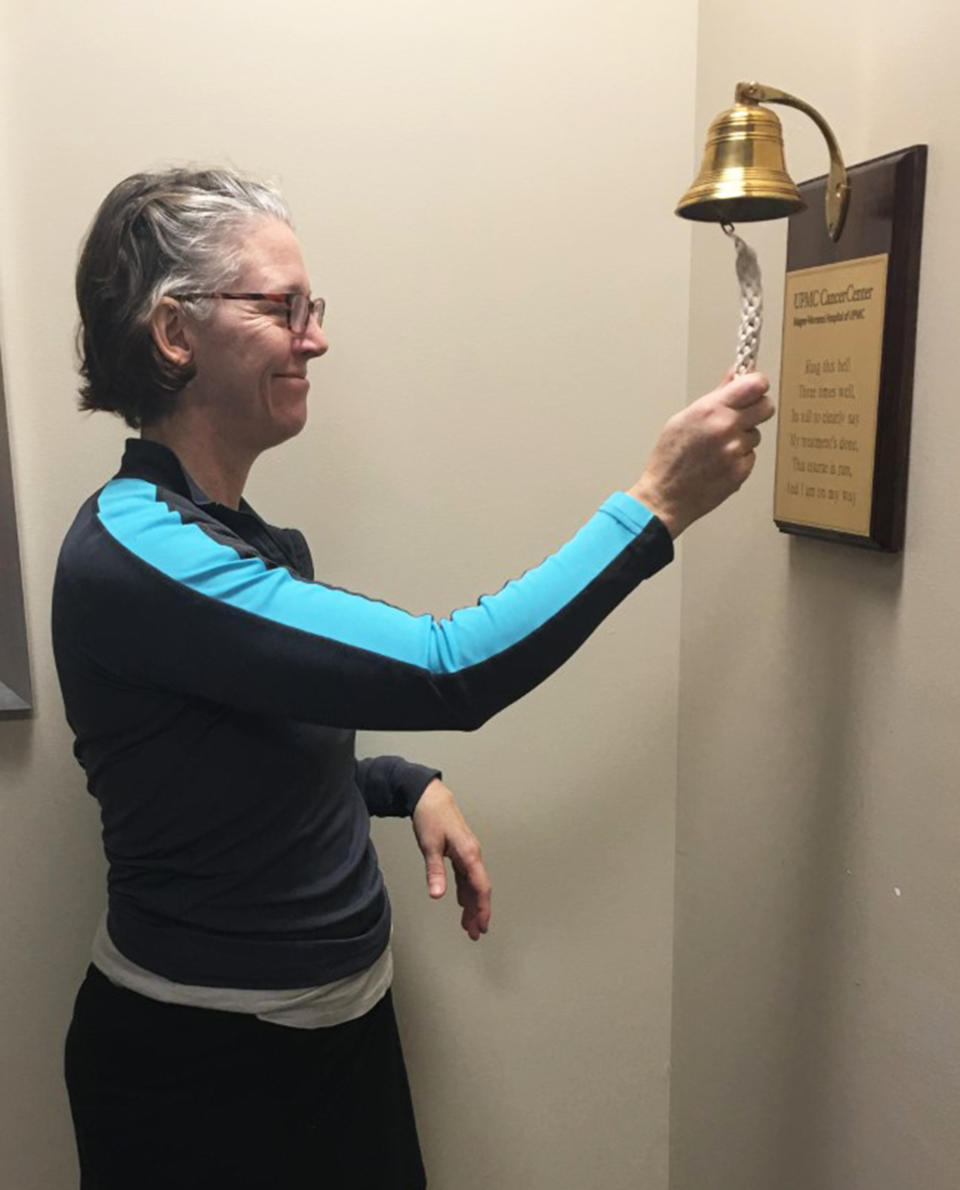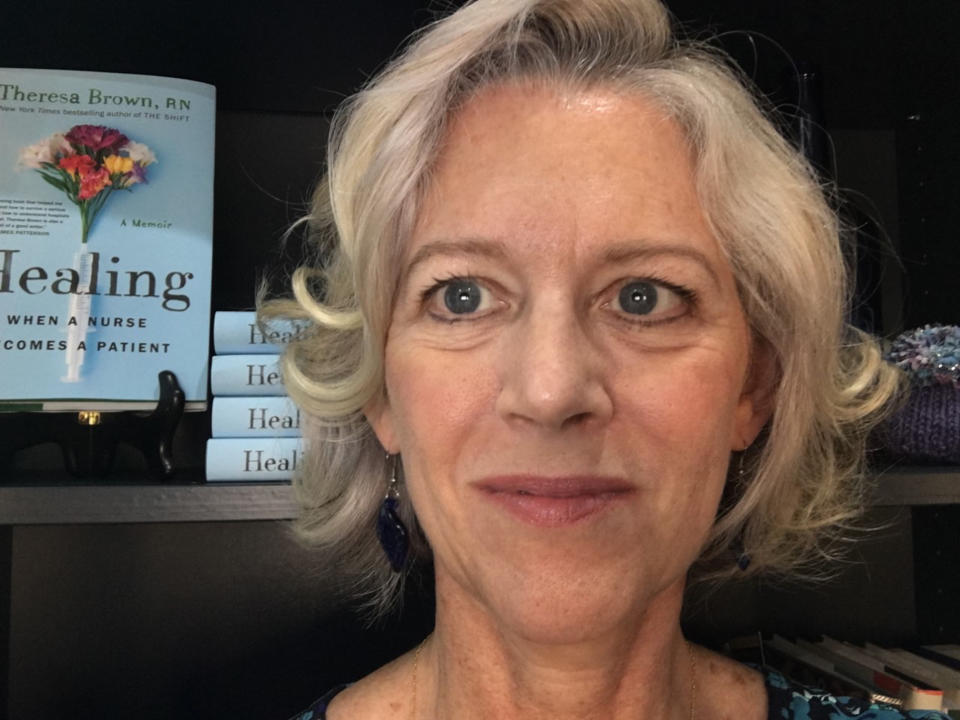Nurse who became patient shaken by 'DIY cancer care,' lack of kindness in health care
Theresa Brown, RN, is a veteran oncology and hospice nurse who lives in Pittsburgh, Pennsylvania. In 2017, she was diagnosed with stage 1 breast cancer and was taken aback by her experience as a patient. Brown, 57, chronicles her health care journey in the book, “Healing: When a Nurse Becomes a Patient.” She shared her story with TODAY.
I never expected to become a patient. People in healthcare believe we’re invulnerable to something really serious. Working with cancer patients, it was like: that’s who I take care of, that’s not who I am. So when I became one, it knocked that whole idea of invulnerability down. Suddenly, I had to realize that wow, I’m actually human.
It was a terrifying diagnosis because it’s cancer. But I was really surprised that there wasn’t more effort done to coordinate my care, to make me feel like somebody was managing things, that people were looking out for me. It was DIY cancer care.
I felt like: Why don’t they give out a sheet that says this is what you have and this is what the prognosis looks like? Nobody gave me anything in writing like that. Nobody ever said, “We’ve got this. This is the most common kind of breast cancer. We know how to treat this. You are going to be OK.” That would have made it so much better able to tolerate things.
I was extremely lucky in that I’m a nurse in the system. I have a friend who’s a breast surgeon who recommended the doctor I went to. Even with those resources, there was confusion about whether I would need chemotherapy or not, and just tons of phone calls to try and figure that out. I wasn’t able to talk to the doctor who was going to be able to help me.
This is a very vulnerable time for patients, so there needs to be a system in place that can always address what people need.
But when I went to schedule a biopsy, the scheduler had left for the day and no one else was going to do it. The other receptionist said, “Oh, you just missed her” and I became enraged. It was like a breaking of trust right in that moment and I felt like I worked really hard to have patients trust me.
It surprised me and made me realize we don’t know what our patients are going through. We don’t know how something that to a scheduler feels like a small thing — “I can’t do it today, I’ll do it tomorrow” — feels enormous to the patient.

As practitioners, we give also give out the message to patients to be passive and undemanding — and patients absorb it. Health care is like an assembly line, and not just one. There’s the breast cancer assembly line, the billing assembly line and the let’s-get-people-in-and-out-of-here-as-quickly-as-possible assembly line.
When you put the brake on one of those assembly lines, it messes with everything because everybody is overworked and everything is over-scheduled. There’s this whole ripple effect, so patients who go along to get along keep all that machinery working. I had absorbed that also.
But there came a point when I realized, “I’m being an easy patient and it’s terrible. I feel like I’m not even a human being anymore.” When I started to push back more and ask more questions, I realized that this is a very appropriate behavior. The system should not be so resistant to these very human needs to understand what’s going on with your body when you have a terrible diagnosis.
I would encourage every patient to ask questions. Don’t yell at people, be appropriate, but push back a little bit. We’ve enculturated patients with this idea that you have to be meek in order to get care, and you don’t.
I had a lumpectomy and radiation to treat my breast cancer. I longed for warmth and kindness during my treatment, but people in health care are overworked. We now have electronic health records, which are monsters that constantly want more and more information from us.
Then, there’s so much focus on profit and generating revenue. Those pressures create less time for patients and also less ability to be human with them.

Simply saying, “I am here for you. I care” can really make a difference for the patient. That doesn’t mean every nurse and doctor has to come to work with 100% empathy all the time because I don’t think that’s possible. But try to see the category “patient” as a much broader thing, as someone who’s a human being out there in the world. There’s a life they were part of — now this has become part of their life.
We’ve created this system that doesn’t see patients’ humanity and also doesn’t see clinicians’ humanity. I would love to make a difference in how people experience health care.

